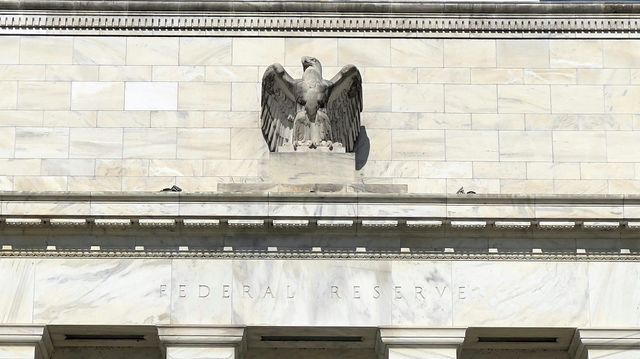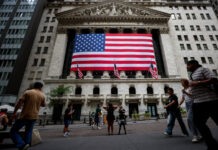
Stocks climbed after another batch of strong corporate earnings and speculation central banks will refrain from rushing into rate hikes. Treasuries fluctuated.
Equities gained even as data showed a smaller-than-expected drop in U.S. jobless claims. Retailers Macy’s Inc. and Kohl’s Corp. rallied after boosting their full-year outlooks. Chipmaker Nvidia Corp.’s forecast beat estimates. Cisco Systems Inc., the biggest maker of computer networking equipment, weighed on the Dow Jones Industrial Average after a lackluster sales projection. China’s top e-commerce firm Alibaba Group Holding Ltd. slashed its outlook for fiscal 2022 revenue.
“U.S. equity markets remain in record-high territory as strong consumer demand continues to offset supply side constraints and inflation concerns,” said Craig W. Johnson, technical market strategist at Piper Sandler. “Monetary policy remains accommodative and despite the recent uptick in volatility, interest rates remain historically low. The technical setup remains bullish.”
The third Friday of the month, when most stock options expire, is tomorrow. The event, colloquially known as op-ex, in recent months has triggered a semi-predictable volatility storm. Judging by the total amount of open interest in the contracts due on Friday, the monthly event could be the second-biggest in recent history.
JPMorgan Chase & Co. economists said they now expect the Federal Reserve to raise interest rates next September, becoming the latest on Wall Street to jettison a forecast for the central bank to stay on hold through 2022. Goldman Sachs Group Inc. analysts said last month they expect a Fed hike in July. Their counterparts at Morgan Stanley still see officials not shifting rates throughout next year.
Traders have pushed back bets on the first European Central Bank rate hike to 2023, a sign they’re heeding policy makers’ message of patience. Money markets now expect the central bank to raise its deposit rate by 10 basis points only in February 2023, compared with wagers December 2022 on Wednesday. Then, the policy rate could take five years to rise to 0%, swaps contracts suggest.
The Turkish lira fell to a record low after the central bank cut borrowing costs for a third straight month, a move that risks further undermining price and currency stability. An interest-rate increase by South African officials provided little support for the rand, which fell to its weakest levels this year.
What to watch this week:
- Fed’s Richard Clarida and Mary Daly speak at Asia Economic Policy Conference. Friday
Some of the main moves in markets:
Stocks
- The S&P 500 rose 0.2% as of 9:44 a.m. New York time
- The Nasdaq 100 rose 0.5%
- The Dow Jones Industrial Average fell 0.1%
- The Stoxx Europe 600 fell 0.2%
- The MSCI World index was little changed
Currencies
- The Bloomberg Dollar Spot Index was little changed
- The euro rose 0.2% to $1.1344
- The British pound fell 0.1% to $1.3473
- The Japanese yen fell 0.2% to 114.30 per dollar
Bonds
- The yield on 10-year Treasuries was little changed at 1.60%
- Germany’s 10-year yield declined two basis points to -0.27%
- Britain’s 10-year yield declined four basis points to 0.92%
Commodities
- West Texas Intermediate crude rose 0.5% to $78.76 a barrel
- Gold futures fell 0.2% to $1,869.70 an ounce




















